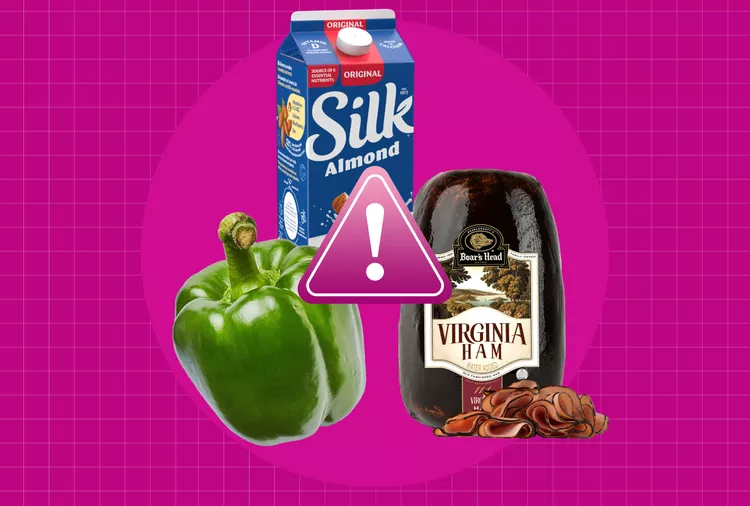Can You Freeze Deli Meat: Deli meats, also referred to as lunch meats or cold cuts, encompass a wide range of cooked, cured, smoked, and dried meats that are commonly sliced and served in sandwiches, wraps, or as part of a platter. These meats can be purchased either whole, pre-sliced and packaged, or sliced to order at the deli counter.
While deli meats are typically consumed shortly after purchase, freezing provides an effective method to preserve them for extended periods. However, it is crucial to handle, package, store, and thaw deli meats properly to maintain their quality and safety.
This guide provides essential information on how to safely freeze, store, and thaw deli meats, ensuring that you can enjoy their flavor and freshness even after long-term storage. By following the right techniques, you can extend the shelf life of your deli meats without compromising their taste or texture.
Contents
Can You Freeze Deli Meat Safe ?

However, while remains safe to eat indefinitely, its quality may begin to decline over time. Internal chemical reactions, oxygen exposure, and improper storage or thawing can negatively affect the texture and flavor of the meat . Signs of quality deteriolude:
- Development of rancid odors and off-flavors
- Color changes
- Loss of moisture
- Freezer burn, where the meat dries out, turning gray and spongy .
Typically, deli meats should b°F (-18°C)** for 1 to 2 months for optimal quality. While the meat will still be safe to eat beyond this period, the texture and taste may be compromised . To preserve the best quality, it’s recommended to freeze dfter purchase. The longer it remains unfrozen, the greater the risk of it becoming spoiled or contaminated.
Sliced vs. unsliced: Does it matter?
Deli meats can be safely frozen both sliced and unsliced, offering flexibility in storage options. Freezing sliced deli meats allows for smaller, more convenient portions that are easier and quicker to thaw when needed. However, when slicing deli meats before freezing, extra care must be taken with packaging. More surface area is exposed to oxygen and drying air, which can result in a loss of quality over time, such as flavor and texture degradation.
Additionally, sliced and pre-packaged deli meats are more susceptible to bacterial contamination and the growth of other pathogens. To minimize this risk, it’s essential to store deli meats in the refrigerator or freezer immediately after purchase. This prevents any harmful microbes from thriving and ensures the meat remains safe to consume when frozen for long periods. Proper packaging and quick storage are key to maintaining both safety and quality
Best freezing practices for different types of deli meat
Different types of deli meats require specific freezing methods to ensure the best preservation of quality. While most deli meats remain safe to eat beyond 1–2 months of freezing if kept at the proper temperature, it’s important to follow the right freezing technique for each type to maintain flavor and texture.
- Cooked sausages, such as bologna, bratwurst, chorizo, hot dogs, and mortadella, are made from ground meat, spices, and seasonings that have already been cooked. These sausages can be frozen either whole or sliced, although larger sausages may retain better quality if frozen in slices.
- Dried sausages, including salami, summer sausage, pepperoni, and saucisson, are typically fermented, dried, and sometimes smoked. These can also be frozen whole or sliced, with larger sausages being easier to handle when sliced before freezing.
- Roasted meats, such as roast beef, lamb, or pork, are cooked and then sliced thinly for serving. These meats can be frozen either sliced or unsliced, depending on your preference and how you plan to use them after thawing.
- Cured meats, such as pancetta, ham, prosciutto, bresaola, and pastrami, are preserved using methods like salting, brining, smoking, and curing with nitrites or sugar. These meats can be frozen both sliced and unsliced for up to 1–2 months, allowing you to enjoy them later while retaining their distinct flavors.
- Pressed meats, including those made from ground turkey or chicken mixed with binders and water, are shaped into loaf-like forms for easy slicing. These can also be frozen either sliced or whole. When freezing unsliced pressed meats, it’s best to divide them into individual portions for easy thawing.
By following proper freezing techniques tailored to each meat type, you can extend their shelf life while preserving their taste and texture.
Canned lunchmeat
Tips for Freezing and Thawing Deli Meats
To preserve the quality of frozen deli meats, it’s essential to handle, store, and thaw them correctly. Here are some key tips to ensure your deli meats maintain their best taste and texture after freezing:
- Purchasing: Buy deli meats from a reputable supplier for the best quality. For a fresher product, it’s ideal to purchase whole meats and slice them yourself or have a butcher slice them for you at the time of purchase. This ensures better control over the portion sizes and freshness.
- Timing: If you plan to freeze deli meat, do so as soon as possible after purchasing. The longer the meat sits unfrozen, the more likely it is to spoil or become contaminated, which can negatively affect both its safety and quality (1).
- Hygiene: Always ensure that your hands, utensils, surfaces, and storage containers are clean when handling deli meats. Proper food safety prevents the introduction of bacteria or pathogens during storage.
- Portioning: Deli meats can be frozen sliced or whole. Slicing the meat beforehand allows for easier portioning and speeds up the thawing process, helping maintain better quality.
- Packaging: When freezing deli meat, ensure it is tightly wrapped or bagged, with as much air removed as possible. You can use wax paper between slices to prevent sticking. If the meat is pre-packaged, it’s best to wrap over the original packaging or re-wrap it to ensure proper sealing (1).
- Freezing: Freeze deli meats at 0°F (-18°C) or colder. Initially, freeze the meat in a single layer to speed up the freezing process. Once fully frozen, you can stack the meat for easier storage. The faster the freezing process, the better the quality of the meat (1, 4).
- Labeling: Always label and date the packages of frozen deli meat so you know exactly how long they’ve been stored. Include a use-by date (typically 1–2 months from freezing) to help maintain the best quality.
- Thawing: For optimal results, thaw deli meats in the refrigerator. Avoid using the microwave, as it may cause uneven defrosting or partially cook the meat, negatively impacting its texture. Never thaw at room temperature, as this poses a food safety risk (2).
- Eating and Storage: Consume thawed deli meats as soon as possible. Store any uneaten portions in the refrigerator, and if the meat was frozen right after purchase, it should remain safe for 3–5 days. Pre-packaged, unopened deli meats can last up to 2 weeks in the refrigerator (5).
- Safety: If thawed deli meat smells unpleasant, turns greenish, or feels slimy, discard it immediately. These are signs that the meat is no longer safe to eat.
By following these tips, you can safely store, freeze, and thaw deli meats, preserving their freshness and flavor for future enjoyment.
The bottom line
Deli meats, whether whole or sliced, can be safely stored at 0°F (-18°C) indefinitely from a safety standpoint. However, for optimal taste and texture, it is recommended to consume most deli meats within 1–2 months of freezing. To maintain the highest quality, it’s crucial to follow proper preparation, storage, and thawing methods.
By adhering to a few simple food safety guidelines, you can ensure that your deli meats are safely frozen and can be enjoyed for extended periods without sacrificing flavor or freshness. Whether you freeze your deli meat whole or sliced, taking the right steps guarantees that it remains safe and delicious whenever you’re ready to use it.








